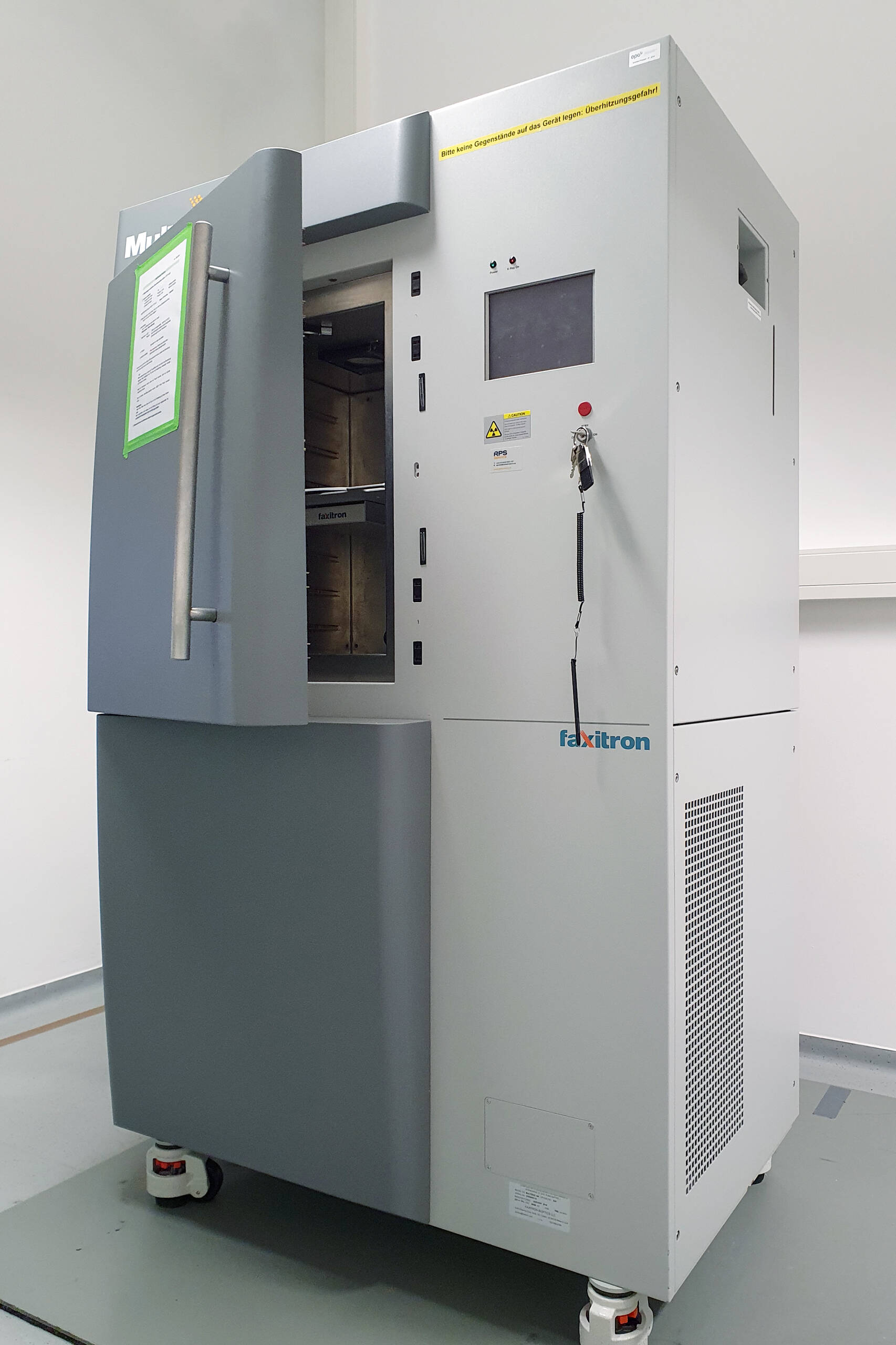Radiation therapy is one of the most common treatments for cancer and refers to treatment options that use radiation to kill cancer cells and shrink tumors. The two main types of radiation therapy include external beam radiation and internal radiation therapy. Radiopharmaceuticals such as radionuclides conjugated to tumor-directed monoclonal antibodies or peptides represent a more selective internal radiation therapy approach. EPO has the capabilities to test both external beam radiation and radiopharmaceuticals in a preclinical setting to facilitate the progress of your oncology programs.
Tumor irradiation
We administer radiation using the Faxitron® Multirad 160 X-Ray irradiation system. This capability offers the possibility to simulate irradiation schedules during the drug discovery process and to administer radiation at clinically relevant dose levels (up to 300 Gy/min) in a uniform or local field for the following applications:
- Therapeutic radiation: to evaluate the effects of radiation on tumor cell proliferation in vitro and in vivo with the possibility to perform local treatment focused to specific anatomical sites.
- Myeloablation: to support the engraftment of human tumors, stroma or stem cells into immunocompromised mice.
- Combination therapy: to combine radiation therapy with chemotherapy, targeted therapies and immunotherapies such as immune checkpoint inhibitors (ICIs).
Radiopharmaceuticals
Radiopharmaceuticals are radioisotopes conjugated to biological molecules such as antibodies and deliver radiation therapy more directly and specifically to cancer cells. We currently have the permission to perform studies with these radioisotopes:
- Alpha radiation: Actinium-225, Radium-223, Thorium-227
- Beta radiation: Tritium, Carbon-14, Yttrium-90, Lutetium 177
- Gamma radiation: Indium-111, Iodine-125
Please get in touch if your radioisotope is not included in that list or to discuss a specific study outline with our scientists.
